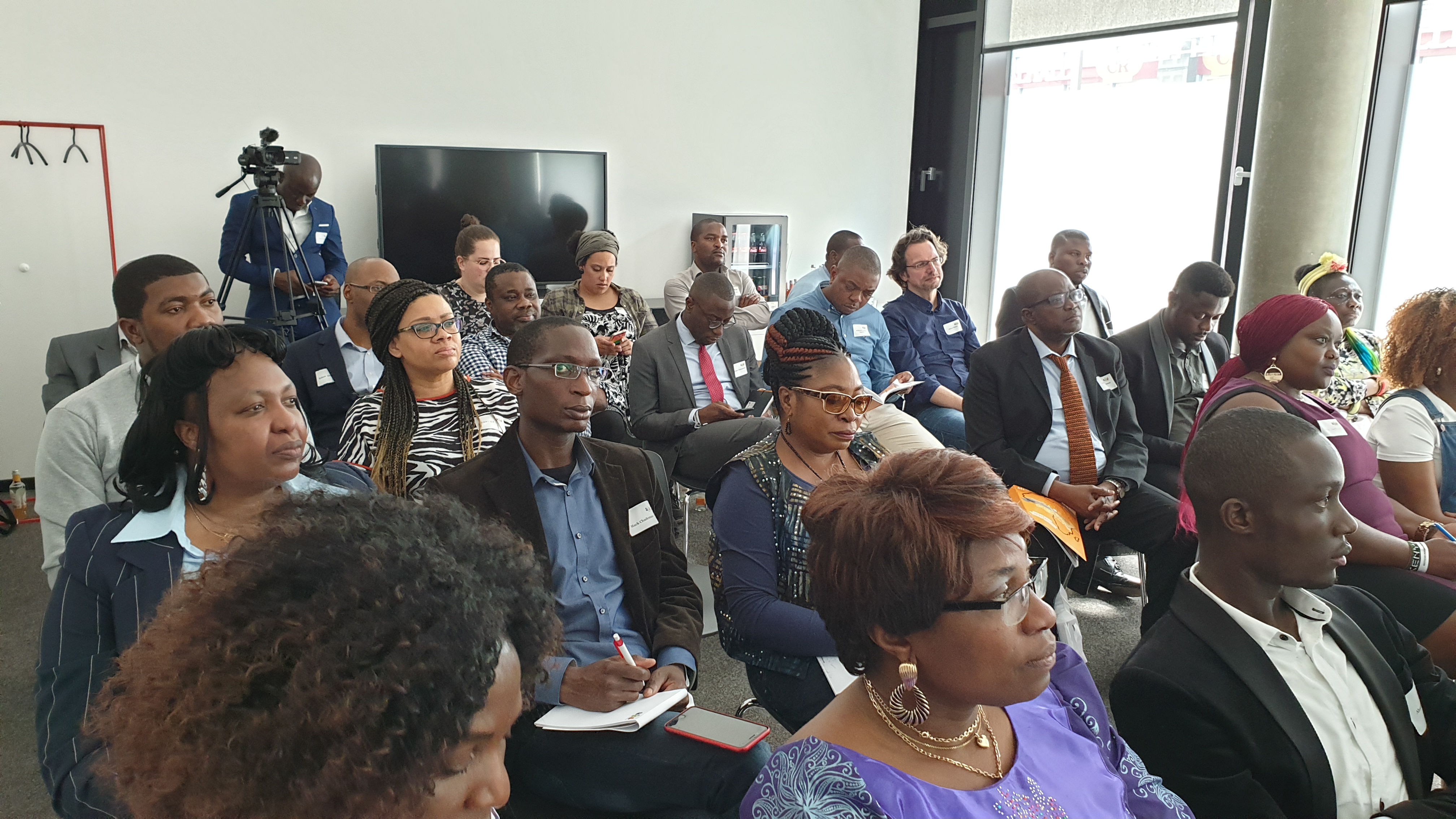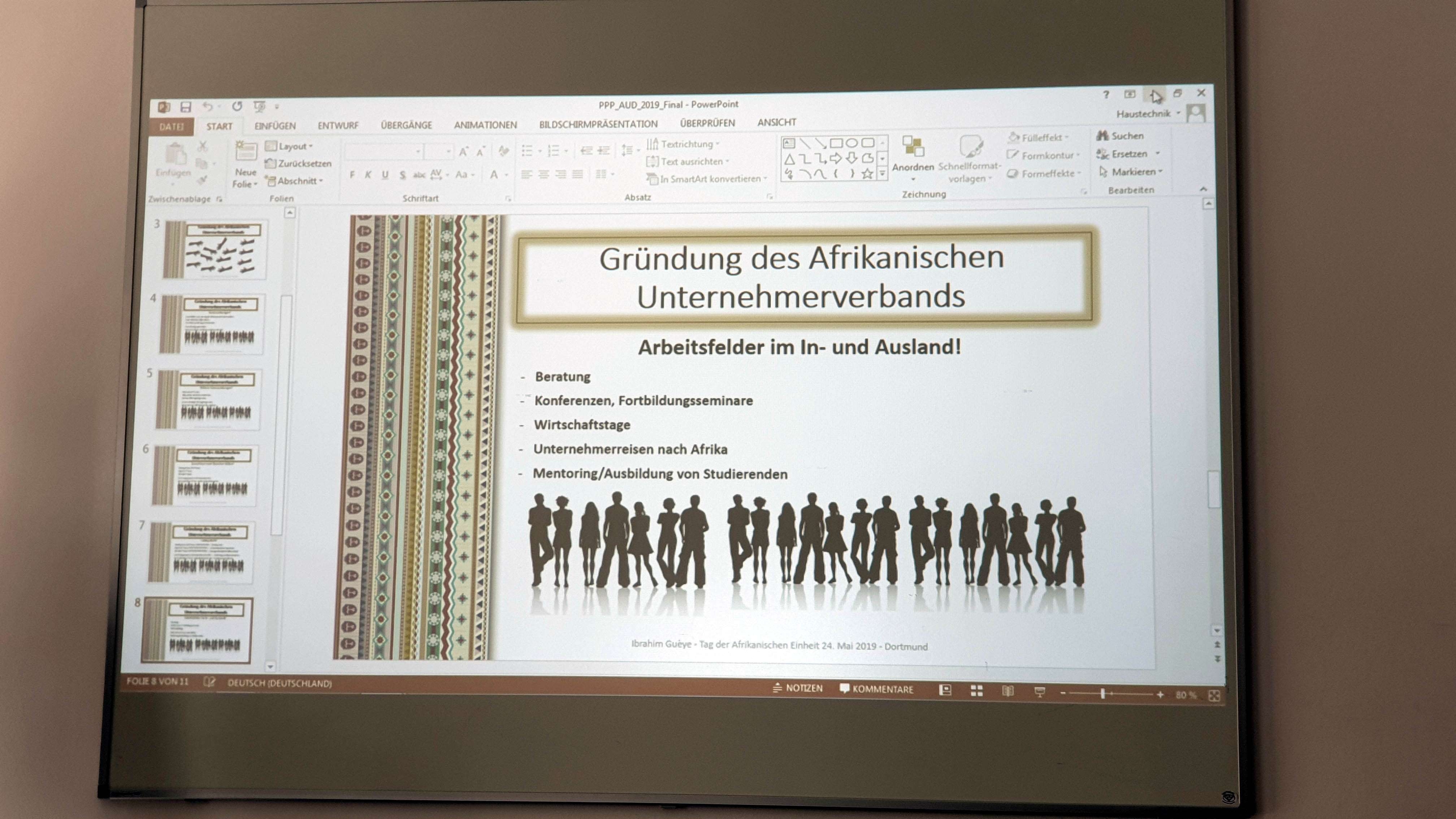How to make African-owned businesses in Germany more resilient and less prone to failure was the theme of one of the workshops held as part of the Africa Day programme in Dortmund on 24-25 May.
The event, organised by AfricanTide Union, commemorates the founding of the Organisation of African Unity (now African Union) on 25 May 1963.
Clément Klutse, a Hamburg-based management consultant, made a presentation on ‘Promotion and Professionalization of Black Businesses in Germany’.
He said the increasing bankruptcy rate among migrant entrepreneurs had made it important to focus on how they ran their businesses.

Klutse, founder of KMC – Klutse Management Consulting, observed that businesses owned by migrants often do not plan well which is why they fail. He observed that African entrepreneurs were especially affected by typical problems and that most even shun professional advice as they did not consider it important. He said such an attitude, which he described as ‘advice-resistance’, was dangerous as a little, avoidable mistake could spell doom for their enterprises.
Klutse, who holds an MBA from the University of Hamburg, listed the mistakes often made by Africans, including
- Lack of proper feasibility study showing that a business is viable
- Inadequate knowledge of the business
- Lack of adequate financing
- Choosing a wrong location
- Lack of qualified staff
- Poor management practice
An example of a poor management practice that Klutse had observed mainly among restaurant owners is setting prices too low in the mistaken belief that it would draw more customers even when the potential for patronage is not very flexible. “If your price is too low you can never break even,” he said. “You have to carefully calculate your prices.”
Klutse, who is also a communal politician in Hamburg and member of the CDU, said a business is resilient when it could withstand competition and master complex challenges in the market. “Entrepreneurs must understand the nature of challenges in their business to be able to anticipate and master them,” he advised.

“Always think about the future and learn to recognize early warning signs of change in the market.”
Klutse, who is the organiser of the ‘The Night of African Entrepreneurs’, an annual event that takes place in Hamburg, advised that African entrepreneurs and those planning to set up businesses should seek professional advice as they could only gain by doing so.
Klutse said demographic changes in Germany, driven by migration, provides plentiful opportunities for migrant entrepreneurship. The management consultant however agreed that Africans like other migrants often had problems securing bank loans which forced some to resort to raising capital in their countries of origin.
Klutse opines that a way to overcome that challenge was to seek professional counselling as a bank would not grant a loan without a well-prepared business plan.
“Learn to seek professional advice,” he reiterated in the conclusion of his presentation.
About 2 per cent of the 755,000 migrant-owned businesses in Germany belong to Africans, who are mostly active in retail trade (shops), services (barbing and hairdressing salons, travel agencies, handwork) and import & export (shipping agencies, auto/machinery/equipment export and raw material/agriculture produce import).
In a second presentation, Ibrahim Guèye talked about the importance of forming associations by people doing the same thing.
Guèye, a Dusseldorf-based journalist and PR consultant, said associations were useful because their members could share ideas and experiences and collectively tackle common challenges and problems.
He emphasized the need for African entrepreneurs to form associations. “We don’t need a hundred people to form an association in Germany,” he said. “Seven people are enough.”

Associations were useful for other African professionals as well, he said, revealing that there were more than 7,000 medical doctors with African origin in Germany. “Are you aware that there’re about 5,000 Cameroonian engineers working in Germany?”
Guèye advised Africans to be active in their professional associations to learn how such bodies were organized and run. And they should make it a duty to attend German events on Africa.
Read Also: Experts chart way forward for Africa in Dortmund
Guèye, who worked for a long time with the German business weekly Wirtschaftswoche, said African professional bodies could offer consulting services, organize conferences and group business visits to Africa, and mentor/ train young students.
“Africans have to learn how to work together,” he advised.
AfricanTide Union, organizers of the event, is of the view that successful African entrepreneurs in the Diaspora could serve as a bridge to Africa and contribute to the continent’s economic development.
Femi Awoniyi
Contacts:
Clément Klutse, www.kmc-company.com
Ibrahim Guèye, www.sdg-partnership.com
About AfricanTide Union:
AfricanTide Union develops strategies for a successful knowledge transfer. It helps migrants and professionals to always have the right answers to the ever-changing challenges of African-European business relations.
In collaboration with institutional partners, the AfricanTide team has built up an international network. Sustainable training concepts enable better chances on the job market and a successful life plan of individuals.
The organisation offers contacts and consultants – to both African and European companies. With its know-how it enables better business relations – transparent, fair and non-bureaucratic.
More information about AfricanTide Union at: http://africantide.com
 THE AFRICAN COURIER. Reporting Africa and its Diaspora! The African Courier is an international magazine published in Germany to report on Africa and the Diaspora African experience. The first issue of the bimonthly magazine appeared on the newsstands on 15 February 1998. The African Courier is a communication forum for European-African political, economic and cultural exchanges, and a voice for Africa in Europe.
THE AFRICAN COURIER. Reporting Africa and its Diaspora! The African Courier is an international magazine published in Germany to report on Africa and the Diaspora African experience. The first issue of the bimonthly magazine appeared on the newsstands on 15 February 1998. The African Courier is a communication forum for European-African political, economic and cultural exchanges, and a voice for Africa in Europe.



































